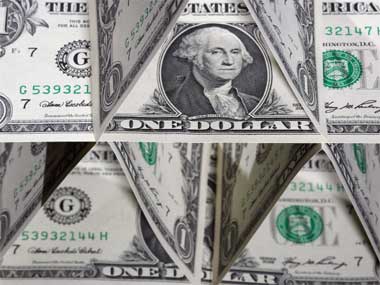By S Murlidharan
UPA-2 has been accused of being frozen in a policy paralysis. Nothing exemplifies this more than its kneejerk responses to the impending foreign exchange crisis with the rupee perilously close to the Rs 62 mark against the greenback. Choking money supply in the economy while applying the brakes on the purchase of dollars has the prospect of bringing the economy itself to a screeching halt.
There is no way the fuel import bill can be contained. There is no way exports can register a sudden boom given the dog-eat-dog nature of competition in the export market and the comatose state of the western economies by and large. And there is no way FDI is going to surge even if the roadblocks are removed because experience shows that foreign direct investors are a finicky lot, and would rather bide their time than rush in by checking what’s on offer right now.
[caption id=“attachment_1024959” align=“alignleft” width=“380”]
 Agencies.[/caption]
Agencies.[/caption]
In any case, we are at the tender mercies of foreigners - which is why we yielded to foreign retailers’ demands, including relaxing the 30 percent local sourcing norm to include medium units. The stipulation of US$ 50 million minimum investment in backend infrastructure is now restricted to only the initial investment, and not subsequent increases in capital.
On the other hand, Baba Ramdev and the BJP would have the people believe that if we shake up foreign tax havens and those maintaining secret offshore banks accounts, foreign exchange will pour in like confetti. But that again is wishful thinking. The Swiss are hard nuts to crack, and let us not delude ourselves that we are in the same league as the US in arm-twisting them. What worked for the US will not work for India given our pussyfooting tendencies. There is a view that the Indian government itself is not too keen on the Swiss spilling the beans because it could embarrass many to no end. At any rate, what have we done with the disclosures made by the Germans about the money stashed away by Indians in Liechtenstein banks?
In the event, the options with the government are limited: issuance of sovereign bonds, as suggested in some knowledgeable quarters, and tax amnesty schemes to our own crooks who have salted away their wealth abroad in clandestine corners. The first one is being canvassed seriously, but given the state of the Indian economy foreigners would demand and get their pound of flesh. The interest rate would not be small and the cost of hedging would be prohibitive.
The international rating agencies have been hinting darkly that India merits a downgrade, and they would gleefully downgrade our sovereign bonds if only to spite us. The sovereign bond option, therefore, would be just a quick-fix, with its long-term implications frightening. We should not buy a pig in a poke.
That leaves an amnesty scheme for consideration. Its mention arouses emotions ranging from instant disavowal to tight embrace. Fiscal purists and moralists would not countenance any indulgence for crooks. They cite the examples of countries like the UK and France which do not offer amnesty schemes on the ground that it would amount to admission of the state’s impotence in cracking down on the devious ways of sundry crooks. The US, which was also in the company of the UK and France, at last relented when it read the riot act to UBS a couple of years ago. In the process, it offered an olive branch to its own crooks. Even the UK, while retaining the veneer of dignity, did not bat an eyelid in accepting the tax on interest earned by their own crooks from amounts illegally deposited in Swiss banks.
One must, however, hasten to add that the moral indignation against amnesty schemes does not amount to tilting at windmills. Indeed, indulging the crooks is simply not done, especially given the demoralising effect it has on honest, law-abiding citizens of the country. But extraordinary times require extraordinary remedies though one might bridle and say we have the habit of inviting extraordinary situations on ourselves time and again.
There is one more reason for one last indulgence to Indian crooks: if we can indulge the FIIs with tax exemptions, why not Indians? We know that a sizeable quantum of such flows is actually Indian money round-tripped through an obnoxious tax treaty with Mauritius. If some Indians can be shown this indulgence, why not all Indians? Of course, there is no guarantee that foreign exchange will start pouring in if an amnesty is offered, but given the fact that a sizeable part of the Indian money stashed away abroad belongs to industrialists, one can hope that they will bring it back to bankroll industrial and infrastructural projects that they themselves have been planning to start but were hamstrung on finances.
The government should not demand a very heavy pound of flesh; it will have to make do with a flat tax - say, 20 percent - on the condition that the money brought in will not be invested except in specified desirable areas like industrial and social infrastructure.
Indulging our own crooks is a lesser evil vis–vis the demeaning prospect of begging difficult foreigners, be they lenders, investors or governments themselves. The elephant in the room is black money stashed away abroad. Instead of pleading with foreign governments to hand over the cash held by our crooks with their banks, we should instead invite our crooks themselves, however distasteful it may be to some.
Remember, the prodigal son who returns home always gets better treatment that the one who never strayed. A pity, but this is reality.
)